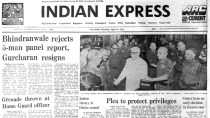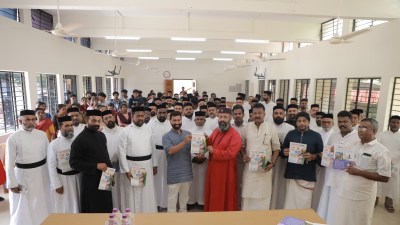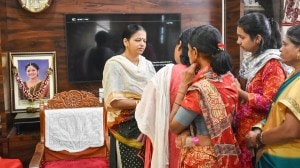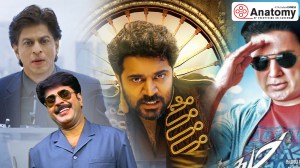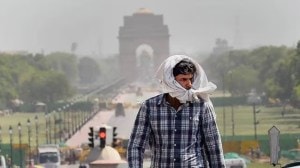- India
- International
Inside Track: Amit Shah’s recent interview with a television channel was uncharacteristically benign
Amit Shah spent a week in Gujarat but he did not meet any party persons, although eight assembly by-elections are due early next month. His wife Sonal insisted that Shah take a break as he is still recuperating from his Covid attack.
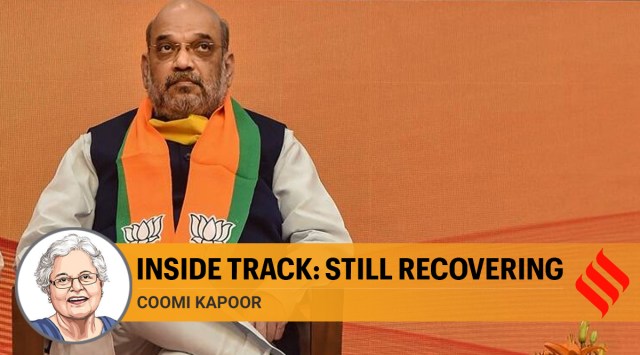 Union Home Minister and senior BJP leader Amit Shah in New Delhi (PTI)
Union Home Minister and senior BJP leader Amit Shah in New Delhi (PTI)Still recovering
Amit Shah so far has not taken part in the Bihar campaign. He was scheduled to visit North Bengal for a BJP organisational meeting in Siliguri on October 17. Instead, he flew to Gujarat where he annually performs a Navratri puja at his family temple in Mansa. Shah spent a week in Gujarat but he did not meet any party persons, although eight assembly by-elections are due early next month. His wife Sonal insisted that Shah take a break as he is still recuperating from his Covid attack. Shah sported a longer than usual beard after his illness not because he was imitating the prime minister, but because both his barbers in Delhi came down with corona. He has subsequently managed a shave and a haircut. Incidentally, his recent interview with a television channel was uncharacteristically benign.
Changing Tactics
The decision to permit Chirag Paswan to cut into JD(U) votes was not merely to clip Nitish Kumar’s wings but also to target deputy CM Sushil Modi. Several BJP state leaders grumble privately that by constantly playing second fiddle to Nitish, Modi has taken the BJP nowhere. But after its earlier over confidence, the BJP is now running scared and trying to mollify Nitish for fear of a Maharashtra-like scenario. In case of a hung Assembly, Nitish could well switch over to the Mahagathbandhan. Tejaswi Yadav once pointedly put up a sign outside the family’s Patna home that Nitish was not welcome, but Lalu Prasad thinks otherwise. He wants the corruption cases against him wound up. Initially, the BJP and JD(U) campaigns were completely separate, contrasting with the togetherness of the Grand Alliance. Now the strategy has changed. With Modi’s arrival, there will be several joint rallies. BJP president J P Nadda can ill-afford another electoral setback after Jharkhand and Delhi.
Why not de jure?
Our textbooks may claim that Indian democracy is patterned on the British parliamentary system, but in reality, we have long moved away from the Westminster model. In his new book Portraits of Power, the evergreen bureaucrat N K Singh, who has played a key role in most governments since Indira Gandhi’s, writes that “India has moved to a de facto presidential model even if it may not be a de jure one”. He points out that the process of change, however, did not begin with Indira Gandhi, as many assume. It started with Lal Bahadur Shastri when he upgraded the PM’s secretariat, implicitly downgrading the Cabinet Secretary and the balance of power in government. Today, the diminishing role of the Cabinet office and Cabinet ministers is a reality and the author suggests that the question of whether India needs a de jure presidential form of government could be re-opened. The PMO model is now being replicated by chief ministers.
G-23 divide
The Congress high command’s game plan is to divide the ‘G-23’, the nickname for all those who signed the letter to Sonia Gandhi calling for party elections and introspection. Mukul Wasnik was pointedly favoured. So much so that when Rahul Gandhi went to Hathras to protest and was informed that only five persons could accompany him, he dropped Randeep Surjewala in favour of Wasnik. Jitin Prasada is another who was hastily mollified. While some UP office bearers called for his expulsion, UPCC chief Ajay Kumar Lallu looked the other way. Prasada has been put in charge of the West Bengal elections. Arvinder Singh Lovely was appointed to the election authority to conduct organisational polls. On the other hand, senior leaders such as Manish Tewari, Anand Sharma, Kapil Sibal and Ghulam Nabi Azad have been left out in the cold. The attitude towards Shashi Tharoor is ambivalent.
Partisan lineup

The lineup over the issue of rigged TRP ratings is entirely on party lines. J P Nadda was the first to tweet in Arnab Goswami’s defence when Broadcast Audience Research Council investigated Republic TV for malpractices. I&B Minister Prakash Javadekar followed suit and his ministry sent a note to BARC. In the legal profession, Harish Salve, who often represents the government, is Goswami’s counsel, while Congress MP Kapil Sibal is on the opposing side. Shashi Tharoor, chairperson of the parliamentary standing committee on IT, referred to Goswami’s channel as “Repulsive TV”, cautioning advertisers not to patronise channels which foment hate. BJP MP Nishikant Dubey threatened to resign from the committee, accusing Tharoor of publicly divulging the committee’s confidential proceedings. Meanwhile, the CBI, controlled by the Centre, is attempting to take over probe on fudging TRP ratings from the Mumbai Police. The Maharashtra government hastily withdrew general consent to the agency to probe cases in the state.
EXPRESS OPINION
More Explained
Apr 26: Latest News
- 01
- 02
- 03
- 04
- 05











